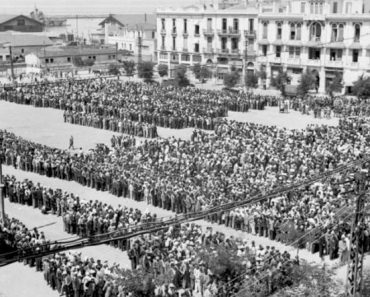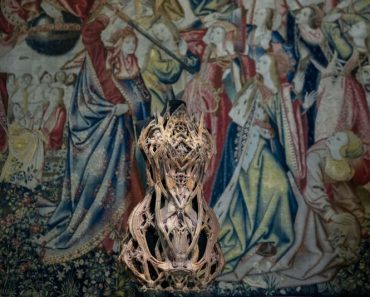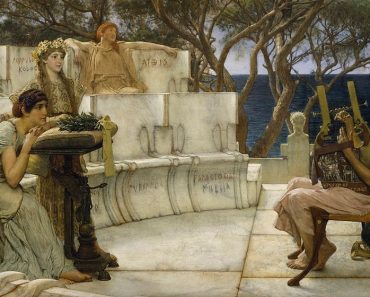We are in Kapetanidis Square, located in the Pasakiòski neighborhood of Veria, an area named after the summer residence of a Turkish Pasha. For half a century, the bakery of the Salapassidis family has been a gastronomic landmark for the wider region.
Salapassidis Wood-Fired Oven: A Half-Century Story
“My family’s story begins with my great-grandfather, Panagiotis Salapassidis, who came from Trabzon and was a baker by trade. In 1929, he came to Greece from the Caucasus region, where he and his family had found refuge after being expelled from Pontus. In 1933, he settled permanently in Veria and continued to work as a baker in a well-known bakery in the city. By his side, my grandfather George began to learn the craft of baking. In 1971, George Salapassidis, a second-generation baker, opened his own bakery in the Orologi area of Veria. His love and passion for the art of breadmaking gradually passed on to my father, Charalampos, who took over the bakery and continued our family tradition. And that’s how it brings us to today,” says Giorgos Salapassidis, the youngest member of the family.

Giorgos is the fourth generation of the bakery. A graduate of the Philosophy Department of the University of Ioannina and a potential musicology graduate from the University of Thessaloniki, Giorgos has loved bread and the art of baking from a young age. He studied at a private baking and pastry school, attended bread and croissant-making seminars at the renowned Le Cordon Bleu in Paris, and is preparing to attend an advanced baking course in Germany to learn new techniques.
After his father’s passing, Giorgos took over the bakery business, with his mother, Katerina, continuing to assist daily, preparing the famous hand-made pies with rich flavor and crispy dough, without a hint of oil. She also bakes traditional peinirli, filled with cheeses, eggs, and even pastirma, offering a taste of the past in a place that harmoniously blends traditional craftsmanship with steady innovation. Sitting at the newly renovated bakery’s outdoor tables, the scent of wood combined with butter fills the air, creating a delightful sensory experience.

“The Oven Never Goes Out”
“Here, where we are, is the ventilation of our new wood-fired oven, which we brought from the Basque Country. It is a state-of-the-art oven with a large capacity that arrived in pieces and was assembled here. It bakes on a rotating plate that is heated by the fire burning underneath it all day. At the start, we use beech and oak for a quick and strong flame. Then, we add the vines to keep the fire strong and create the right embers. The oven never really goes out. There are embers burning all day that give us a steady temperature until the next morning when we reignite the fire for baking,” he explains.
“All the breads we produce in recent years undergo a 24-hour fermentation process. They are kneaded the day before, stored in refrigerators with constant temperature and humidity, and baked at dawn the next day. This process is followed daily and gives us a high-quality result: more digestible bread with a crispier crust and golden color. We bake six different types of bread every day, while on weekends, we offer up to twelve varieties. We have white, whole wheat, rustic with a smaller rise and fuller character, multigrain, rustic with malt and dried fruits, French with rye, Zea flour, barley, whole wheat with figs, apricots, and walnuts, and Campaillou.”

“Bread Is a Living Art”
As we talk, the bakery’s new display cases fill up with mille-feuille tarts with caramel cream and pecans, profiteroles, flan Parisien, Basque cakes, and a range of sweets with a modern touch. The croissants here are crispy, golden, with high-quality butter, excellent layering, and the right moisture. I watch as croissants are prepared: plain, with bacon and cheese, or filled with high-quality pistachio praline, dark chocolate, and caramel. There are also two types of pasta flora with apricot and red fruit fillings, along with small petit-fours filled with various jams.
Before I say goodbye to the Salapassidis family, I ask Giorgos what bread means to him and what it means to the profession he chose to follow. “The Greek has always believed that bread is a basic necessity made simply from flour and water. For centuries, bakers started working in the dark of night to prepare the dough and bake the bread in time for dawn. So, it became ingrained in the Greek consciousness that the baker’s job is heavy labor. But things aren’t like that. When I was in France, I was surprised to find that our professors started at 5 or 6 in the morning. Of course, that requires the dough to ferment for at least 24 hours. Bread is a living form of art that gives me daily satisfaction because it’s always different. I see it coming out of the oven because bread is never the same,” he says.
Info
Salapassidis Wood-Fired Oven
Nikou Kapetanidi 4, Veria / 2331061286
Ask me anything
Explore related questions







